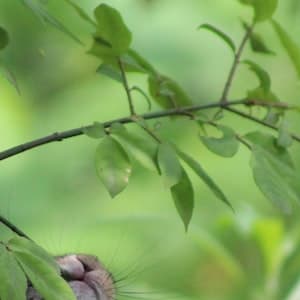babe in the woods: Idiom Meaning and Origin
What does ‘babe in the woods’ mean?
The idiom *babe in the woods* refers to a person who is naive, inexperienced, and easily deceived in a particular situation or environment.

Idiom Explorer
The idiom "in the nip" means to be naked or without any clothes.
The idiom "in the dark" means being unaware or uninformed about something, lacking knowledge or understanding. It is often used to describe a situation where someone is kept ignorant or intentionally left out of important information or events.
The idiom "in the buff" means being completely naked, without any clothing on.
The idiom "in short trousers" is used to describe someone who is young or inexperienced, often implying that they lack maturity or knowledge in a particular area.
The idiom "give someone wood" is a slang phrase that is used to describe a feeling of sexual attraction or arousal towards someone.
The idiom "get taken in" means to be deceived or fooled by someone or something. It implies being tricked or misled into believing something that is not true.
The idiom "German virgin" is a derogatory term used to refer to someone who is sexually inexperienced or naive.
The idiom "fox in the henhouse" refers to a person or thing that poses a threat or danger by infiltrating a group or situation where they are not welcome or trusted.
Fool's paradise is an idiom that refers to a situation or state where someone is happily deceived or living in delusion, unaware of the reality or impending trouble.
Decoding the Naïve Wanderer
The idiom "babe in the woods" refers to an inexperienced or naïve person who is easily taken advantage of or misled. It describes someone who is unaware of the dangers or complexities of a particular situation.
This idiom is commonly used in both informal and formal contexts. It can be found in literature, journalism, and everyday conversations.
One plausible explanation for the origin of this idiom is related to hunters or trappers who would find themselves lost or disoriented in the wilderness. These individuals, referred to as "babes" or "tenderfeet," lacked the necessary skills and knowledge to survive in such a harsh environment. Consequently, they would be more susceptible to the dangers posed by unfamiliar terrain, wild animals, or hostile individuals.
The origin of this idiom can be traced back to the 17th century in America, specifically in the colonial wilderness. It is believed to have derived from stories or experiences of young children or newcomers who would get lost or find themselves in unfamiliar territories, such as dense forests.
It is important to note that while the idiom "babe in the woods" evokes imagery of a helpless and innocent child, it is used figuratively to describe any individual lacking experience or knowledge in a specific context.
While the idiom "babe in the woods" has a clear and widely accepted meaning, its usage and interpretation may vary depending on the context and the speaker's intent. It is important to consider the nuances and implications associated with this idiom when encountering it in various interactions or texts.
Being alone and vulnerable, these young children or newcomers would be easy targets for those seeking to exploit or harm them. Therefore, the phrase "babe in the woods" emphasizes the risks and potential pitfalls that await individuals who are inexperienced or unaware of their surroundings.
Another related idiom is "babies in the eyes," which describes individuals who are extremely innocent or naïve. They trust others implicitly and can easily be deceived or misled. This phrase highlights the vulnerability and lack of awareness that can accompany inexperience or naivety.
Similarly, the idiom "babe in arms" refers to someone who is extremely dependent on others for protection or guidance. They are unable to navigate the challenges or complexities of a situation without assistance. This further emphasizes the defenselessness and lack of experience associated with being a "babe in the woods."
On the other hand, a "babe magnet" is an idiomatic phrase used to describe someone who is very attractive to the opposite sex. While this phrase may seem unrelated to the idiom "babe in the woods," it shares the common theme of vulnerability. Just as a "babe in the woods" may be targeted or taken advantage of due to their lack of experience, a "babe magnet" may attract individuals who seek to exploit their attractiveness for personal gain.
Additionally, the phrase "get taken in" relates to the idiom "babe in the woods" as it refers to someone who is deceived or tricked into believing something that is not true. This emphasizes the susceptibility and gullibility of individuals who lack knowledge or experience.
Overall, the idiom "babe in the woods" serves as a reminder of the vulnerability and potential pitfalls that await those who lack experience or knowledge in a given situation. It cautions individuals to be cautious and aware of their surroundings, while also highlighting the importance of empathy and understanding towards those who may find themselves in unfamiliar territory. The idiom encapsulates a timeless theme that continues to resonate with audiences, bringing attention to the complexities and challenges of navigating an often unpredictable and harsh world.
Example usage
Examples of how the idiom "babe in the woods" can be used:
1. She was so inexperienced in the corporate world that she felt like a babe in the woods.
2. After moving to a new city, he found himself lost and overwhelmed, like a babe in the woods.
3. The tourist wandered away from the guided tour and soon realized she was a babe in the woods, completely unfamiliar with her surroundings.
More "Naivety" idioms



